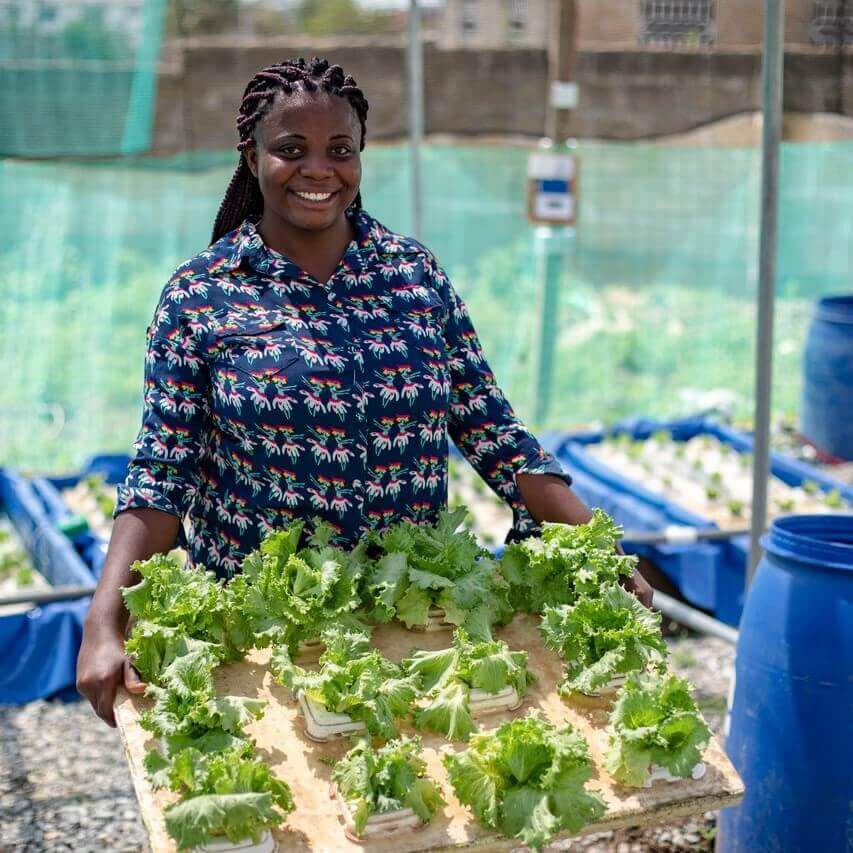Lawrencia Kwansah, an aquaculturist, developed the system with her co-founder in order to give families options for urban farming during the COVID-19 pandemic.
Aquaponics is a closed farming system in which water is pumped from fish tanks to plants. Nutrient-rich fish manure feeds plants, which in turn filter water that is pumped back to the fish tanks. Crops grown by aquaponics don’t require soil, and the system is particularly useful in urban settings where arable land is limited.
The Aquaponics Hub is solar-powered so that it can be used in off-grid areas, or where power outages are common. The kit also comes in various sizes to adapt to the user’s space and needs, and doesn’t require much technical expertise to be used. Smart sensors monitor key factors of plant growth and fish health, including temperature, nutrient levels, pH and oxygen. Users can monitor these on the app, which also contains instructional materials on how to use the system.
A digital marketplace gives owners of Aquaponics Hub kits a place to sell their crops and fish to restaurants and grocers, and provides retailers with additional and affordable sources of quality-controlled produce. The marketplace also helps users find fish food, seeds and kit components.
In the competitive landscape, Aquaponics Hub stands out by integrating smart sensors and a mobile app that directly connects farmers to markets. This innovative approach offers a competitive edge in the growing local market for organic produce and aquaponics systems.
The impact of the Aquaponics Hub is significant. It fosters sustainable food production, reduces environmental degradation, and empowers financially disadvantaged urban households. It enhances food security, creates jobs, and supports economic growth in sub-Saharan Africa by training individuals in aquaponics system management

Aquaponics is a great way to maximise space and empower urban households. It’s often dismissed as too expensive or too technical a method of farming, but we don’t believe it’s either, and our goal is to use it to improve food security across Africa.
Lawrencia Kwansah


